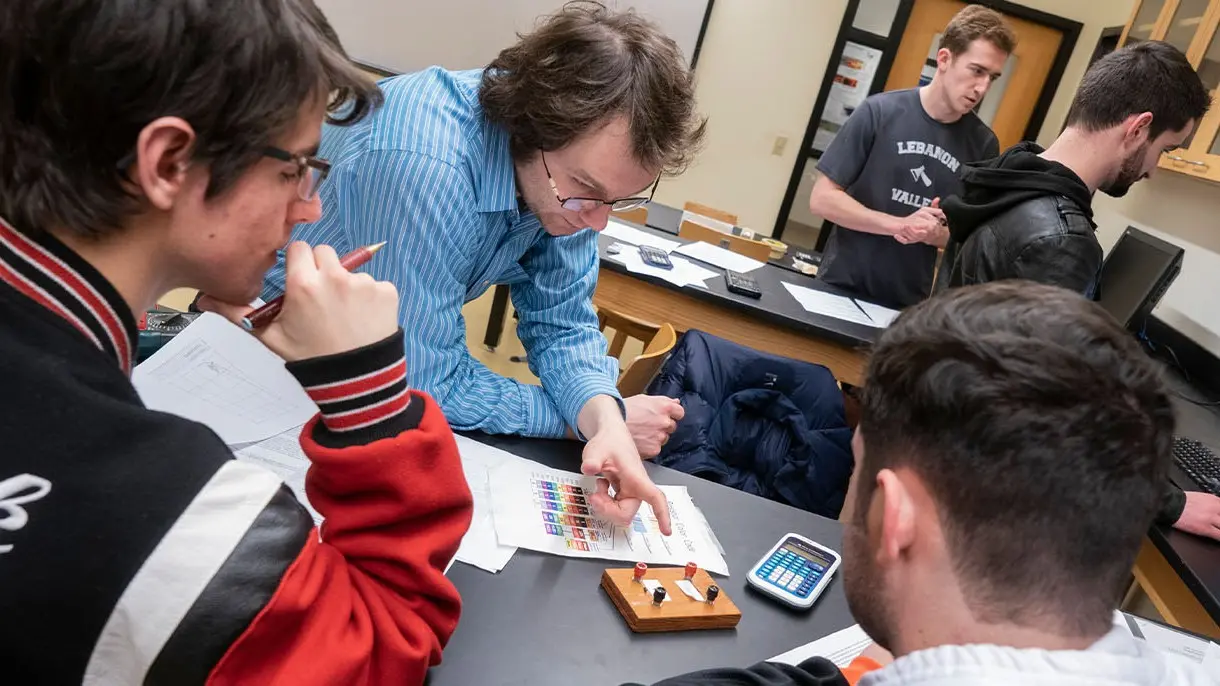
Physics Mission, Goals, & Objectives
The mission of the Department of Physics is to provide in-depth training in physics or engineering physics to our majors and minors to prepare them for careers in the private sector/industry, government labs, and secondary education, or to attend graduate school. This is achieved through a student-centered program that emphasizes coursework and high-impact research/internship opportunities focused on problem solving, critical thinking, experimental, and computational skills as well as technical written and verbal communication.
Physics Program Goals and Objectives
Program Goal 1: Graduates from our program will have a working understanding and knowledge of fundamental areas in physics.
- Students can use principles, laws, and concepts to solve and present problems and explain phenomena in the following areas of physics at the introductory level: fluid mechanics, thermodynamics, optics, special relativity, quantum mechanics, atomic and nuclear physics.
- Students can use principles, laws, and concepts to solve and present problems and explain phenomena in the following areas of physics at the introductory and advanced level: classical mechanics and electromagnetic theory.
Program Goal 2: Graduates from our program will have a working understanding and knowledge of mathematics along with computational skills necessary for advanced work in physics.
- Students can solve problems and explain physical phenomena using the concepts of advanced mathematics as they apply to physics.
- Students can solve physics problems across the curriculum utilizing computers and be proficient in one or more programming languages.
Program Goal 3: Graduates from our program will be skilled in the methods of scientific research and investigation.
- Students can formulate testable hypotheses/models; design and execute appropriate experimental measurements or phenomenological methods to test these hypotheses/models; and collect, analyze, and evaluate experimental data or computational output.
Program Goal 4: Graduates from our program will have effective written and verbal communication skills.
- Students can clearly present solutions to physics problems and results of experimental/theoretical investigations orally using appropriate technical vocabulary and mathematical notation.
- Students can clearly present solutions to physics problems and results of experimental/theoretical investigations in a written format using appropriate technical vocabulary and mathematical notation.
Program Goal 5: Graduates from our program will apply learning to professional activities.
- Students can apply their integrated skill set to professional activities: research, peer-reviewed publications, conference presentations, internships, and post-LVC programs.
For more information on learning goals and outcomes, contact institutionalresearch@lvc.edu.


